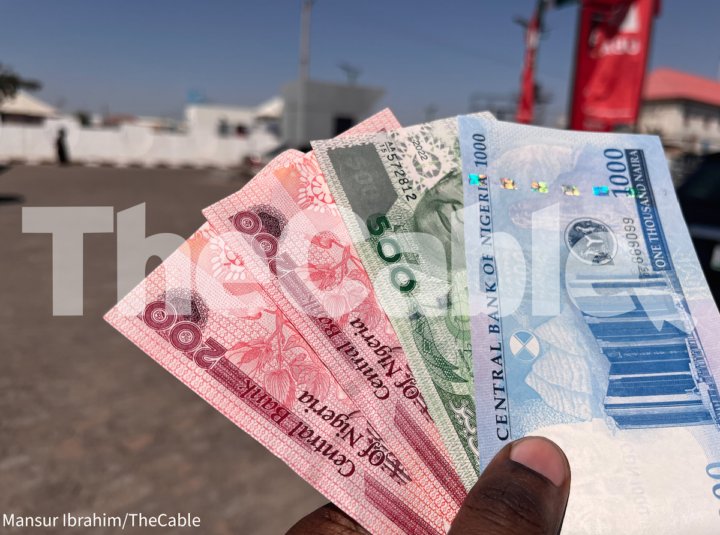
Joshua Alobo, a professor of law, has asked a federal high court in Abuja to restrain the Central Bank of Nigeria (CBN) from terminating the use of old naira notes on January 31.
In the suit marked FHC/ABJ/CS/114/2023, Alobo asked the court to issue a mandatory order, “extending the duration where the old notes cease to become legal tender to the period of three weeks when the redesign notes will be sufficiently dispensed by the commercial banks”.
The CBN, its governor, Godwin Emefiele, and Abubakar Malami, the attorney-general of the federation, were joined in the suit.
CBN had in October, announced that it would introduce a redesign of N200, N500, and N1,000 banknotes.
On November 23, the redesigned notes were unveiled by President Muhammadu Buhari.
In his 21-paragraph affidavit, Alobo said although the CBN’s decision was meant to reduce inflation and entrench a cashless society to curb money laundering and corruption, the majority of Nigerians, especially the less privileged, were yet to have access to the new notes.
He accused the commercial banks of failing to make the new notes available to their customers.
The lawyer said he was still handed the old notes on January 25 at the counter and through the automatic teller machine (ATM).
Alobo also submitted that the January 31 deadline for the usage of the old notes “is discriminatory against the rural dwellers, poor and less privileged persons in the society, as politically exposed persons are paid with the redesigned notes”.
“We concede that the policy of redesigning the currency is within the powers of the CBN, especially with the approval and endorsement of the president of the federal republic of Nigeria.
“However, the lack of necessary publicity due to the absence of the governor of CBN should be a Catholic and pentecostal factor to save the country from implosive corruption as commercial banks through various WhatsApp messages are soliciting for huge cash deposits of over N20billion at twenty percent commission.
“We respectfully submit that the dateline January 31, 2023, for phasing old Naira notes is of grave constitutional importance for the economic survival of the vast population that constitutes the entity called Nigeria.
“The percentage of persons with lower educational background and economic realities of rural dwellers and some Local Governments in Nigeria without a single bank is high,” the plaintiff added.”
The court has not fixed a date to hear the matter.






